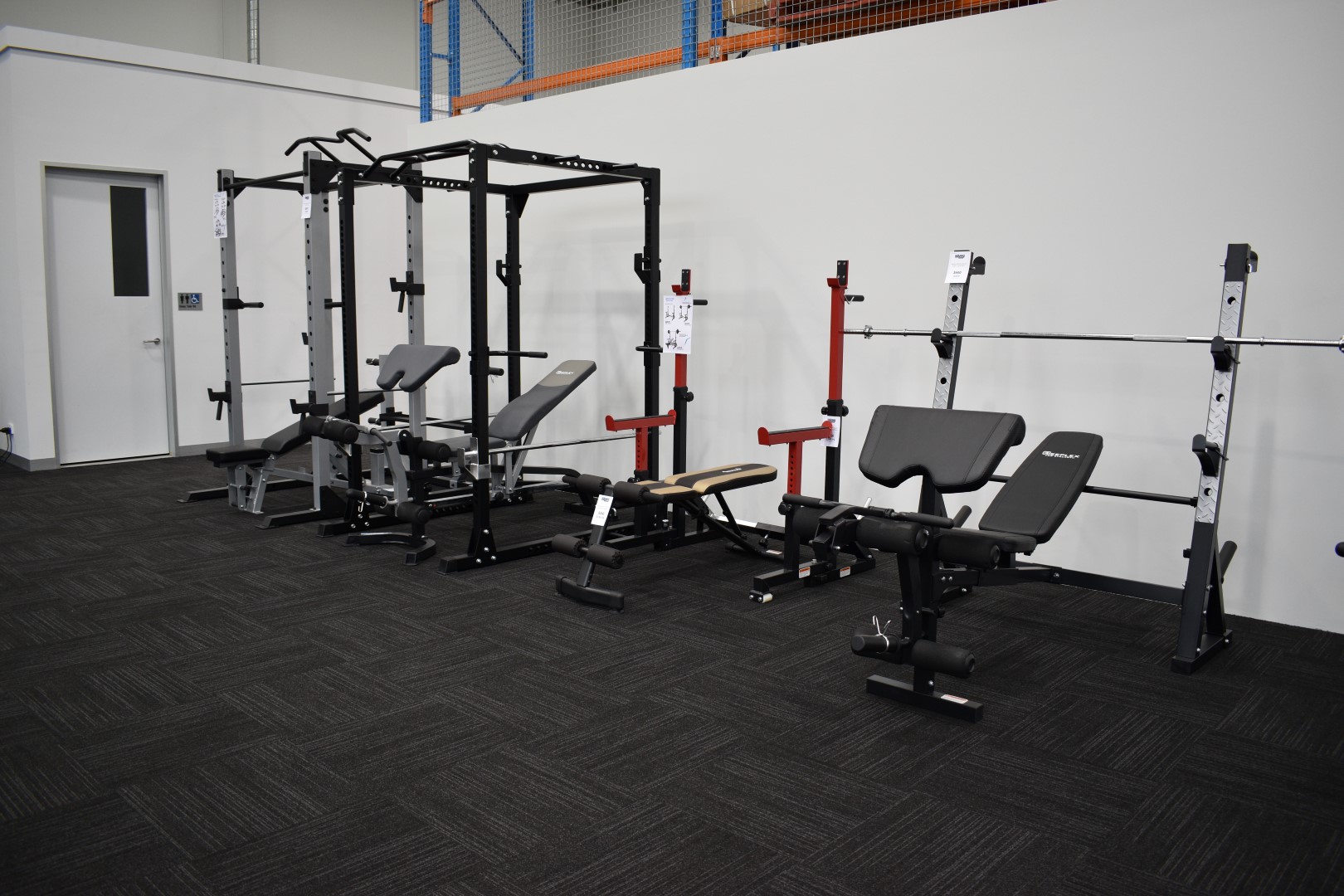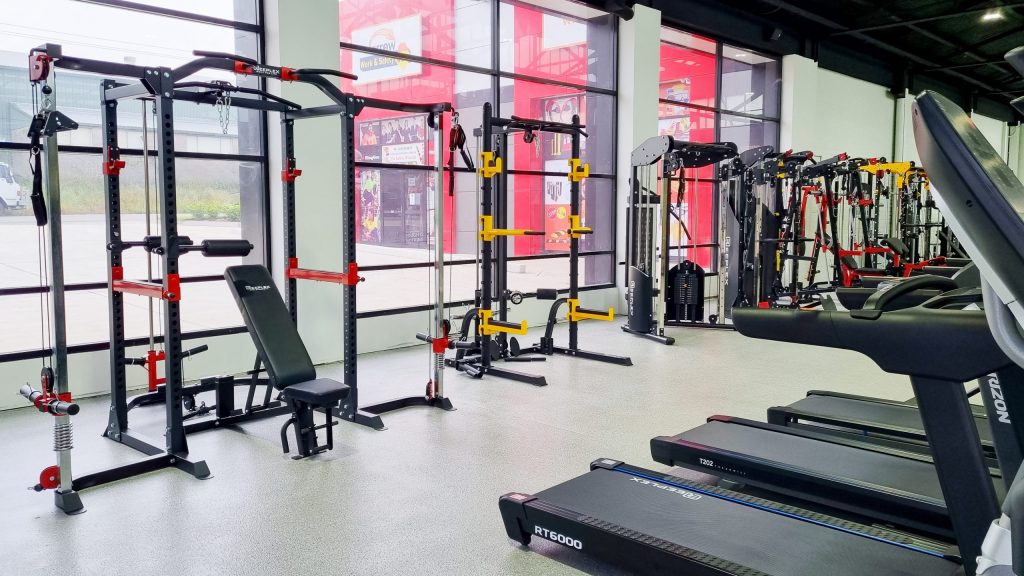
Benefits of Bench Squats for Full Body Fitness
Looking to level up your fitness routine? Ever considered the mighty bench squat? This overlooked exercise not only strengthens your lower body but also engages your core and upper body, delivering a full-body workout punch. Say goodbye to monotony as we uncover the surprising perks of bench squats that go beyond just sculpting killer legs.
From boosting overall strength to enhancing balance and stability, this dynamic move offers an array of benefits that may catch you off guard. Get ready to supercharge your fitness game with this powerhouse exercise.
Squats for Full Body Fitness Fundamentals
Engaging Multiple Muscle Groups Simultaneously
Bench squats are an excellent way to engage multiple muscle groups at the same time. When you perform a bench squat, you work not only your leg muscles but also your core, back, and arm muscles. This simultaneous engagement helps in improving overall strength and stability.
Bench squats improve overall strength by requiring various muscle groups to work together. This exercise is not just about working the legs; it’s about utilizing the entire body to perform the movement effectively. As a result, it contributes significantly to enhancing full-body fitness.
Essential for a Well-Rounded Fitness Routine
Including bench squats in your workout routine is essential for achieving a well-rounded level of fitness. By incorporating this exercise into your regimen, you ensure that your whole body is being worked out effectively.
Bench squats contribute to a full range of motion exercises that help in maintaining flexibility and mobility throughout the body. They play a crucial role in strengthening not only the lower body but also the core muscles which are vital for maintaining good posture and balance.
Box Squats vs. Regular Squats Comparative Analysis
Proper Depth and Form
Box squats are beneficial for ensuring proper depth and form during the exercise. By using a box as a guide, individuals can lower themselves to a specific point before standing back up. This helps in maintaining consistency and correctness in the movement, reducing the risk of injury due to improper form.
Regular squats, on the other hand, emphasize continuous motion without any physical markers for depth. While this allows for more dynamic movement patterns, it may also lead to inconsistent squat depths and potential form issues if not performed correctly.
Both variations offer unique benefits for different fitness goals. For instance, individuals focusing on powerlifting or strength training may find that box squats help them fine-tune their technique and build explosive strength from a dead-stop position. Conversely, those aiming for overall muscle development might prefer regular squats due to their engagement of multiple muscle groups simultaneously.
Balance
In terms of balance, regular squats require continuous stability throughout the entire range of motion. This challenges various muscles involved in stabilizing the body during the exercise, contributing to improved overall balance over time.
Box squats provide an opportunity to momentarily pause at the bottom position before standing up again. While this reduces demands on balance compared to regular squats, it allows individuals to focus more specifically on explosiveness when driving upwards from a static position.
Read Also: Mistakes to Avoid When Using Bench Squats
Comprehensive Benefits of Bench Squats for Muscular and Joint Health
Reduced Stress on Knee Joints and Lower Back
Bench squats are an excellent exercise that can help reduce stress on the knee joints and lower back. By utilizing a bench, individuals can perform squats with proper form, ensuring that the knees do not extend past the toes, which can alleviate pressure on the knee joint. Maintaining contact with the bench during squats provides stability and support for the lower back, reducing the risk of injury.
Performing box or bench squats also allows individuals to control their depth more effectively compared to regular squats. This controlled depth helps prevent excessive strain on the knees and lower back while still engaging key muscle groups like the quadriceps, hamstrings, and glutes.
Targeted Muscle Engagement for Full Body Fitness
One of the benefits of incorporating bench squats into a fitness routine is their ability to effectively target multiple muscle groups simultaneously. Unlike traditional air or barbell squats where there’s a tendency to lean forward excessively or lose balance when squatting too low without support, using a bench ensures proper form throughout each repetition. This promotes balanced engagement of major muscles such as the quadriceps (front thighs), hamstrings (back thighs), glutes (buttocks), and even calf muscles.
Step-by-Step Guide to Perfecting the Bench Squat Technique

Proper Foot Positioning
Position your feet shoulder-width apart on the ground. This ensures stability and proper weight distribution during the squat. It also helps in maintaining balance throughout the lifting technique.
When you place your feet at shoulder-width, it allows for a more comfortable and stable stance, enabling you to perform bench squats with better form and reduced risk of injury.
Lowering Your Body
Lower your body until you lightly touch the bench with your glutes. This movement engages various muscle groups such as the quadriceps, hamstrings, and glutes while promoting a full range of motion.
Touching the bench lightly serves as a guide for depth consistency in each repetition. It prevents excessive strain on joints while ensuring that you achieve an optimal squatting depth for maximum effectiveness.
Maintaining Posture and Core Engagement
Keep your chest up and core engaged throughout the movement. This not only supports proper spinal alignment but also enhances overall stability during bench squats.
Maintaining an upright chest posture minimizes stress on the lower back, promoting the safe execution of this great tool for full-body fitness. Engaging your core muscles provides additional support to maintain balance and control throughout each repetition.
Hormonal Response and Metabolic Advantages of Squats
Growth Hormone Release
Squats trigger the release of growth hormone, which plays a crucial role in muscle repair. This hormonal response is vital for individuals looking to build and maintain lean muscle mass. By engaging in bench squats, you stimulate this physiological response, aiding in the recovery and growth of your muscles.
Bench squats also have metabolic advantages. They can significantly enhance your metabolic rate, contributing to effective weight management. The increased metabolic rate means that your body continues to burn calories even after you’ve completed your workout, assisting in weight loss or maintenance.
Energy Levels Support
The hormonal response from bench squats not only promotes muscle repair but also supports overall energy levels. As a result, individuals who incorporate bench squats into their fitness routines often experience improved stamina and endurance throughout the day.
Building Functional Strength and Athletic Performance
Enhanced Daily Activities
Bench squats contribute to functional exercise by improving performance in daily activities. By engaging multiple muscle groups, these squats strengthen the body for tasks like lifting heavy objects, climbing stairs, or even getting up from a seated position. This functional strength is essential for maintaining independence and preventing injury in everyday life.
Bench squats also play a crucial role in enhancing sporting performance. Athletes who incorporate bench squats into their training routines experience improved force production and explosive power. This translates to better performance in sports that require quick bursts of energy, such as basketball, football, or track and field events.
Read Also: Best Workouts Using Adjustable Weight Bench for Optimal Fitness
Real-World Applications
For power athletes, including those involved in contact sports or requiring vertical jump performance, bench squats are invaluable for developing the necessary whole-body strength. The mechanics of bench squats focus on the concentric contraction phase of the lift which directly supports force production during explosive movements commonly seen in sporting activities.
Conditioning coaches often emphasize the importance of incorporating bench squats into training programs due to their significant impact on overall athletic development. Research has shown that these exercises not only improve physical conditioning but also aid in injury prevention by strengthening core muscles and promoting proper movement mechanics.
Final Remarks
Congratulations on reaching the end of our exploration into the surprising benefits of bench squats for full-body fitness! You’ve uncovered the fundamentals of using bench squats to enhance your overall health, learned about the comparative advantages of box squats versus regular squats, and delved into the comprehensive benefits of bench squats for muscular and joint health.
Shop from a wide range of gym equipment and home gym machines online. Or visit Dynamo Fitness mega showrooms across Australia.
